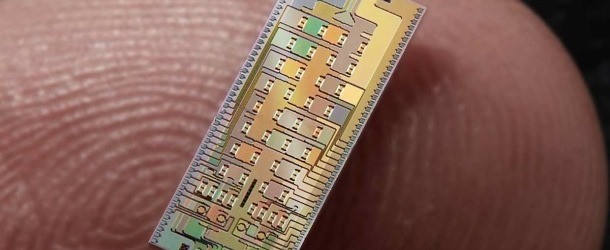Xanada Makes Photonic Quantum Chip Available Over Cloud Using Strawberry Fields & Pennylane Open-Source Tools Available on Github

(SpectrumIEEE) Now Toronto-based Xanadu has developed a photonic quantum chip it says is programmable, can execute multiple algorithms, and is potentially highly scalable.
“For a long time, photonics was considered an underdog in the quantum computing race,” says study co-author Zachary Vernon, head of hardware at Xanadu. “With these results, alongside the growing intensity of progress from academic groups and other photonic quantum computing companies, it’s becoming clear that photonics is not an underdog, but in fact one of the leading contenders.”
The new 4 millimeter by 10 millimeter X8 chip is effectively an 8-qubit quantum computer. The scientists say the silicon nitride chip is compatible with conventional semiconductor industry fabrication techniques, and can readily scale to hundreds of qubits.
Their photonic quantum computer, they say, could scale up to rival or even beat the fastest classical supercomputers—at least at some tasks.
Xanadu has made the chip available over the cloud. Remote users with no knowledge of how the hardware works can still program the device using Strawberry Fields, Xanadu’s Python library for simulating and executing programs on photonic quantum hardware, and PennyLane, the company’s Python library for quantum machine learning, quantum computing and quantum chemistry.
Both Strawberry Fields and PennyLane are open-source, cross-platform tools available on Github. Vernon notes PennyLane can prove useful for all quantum computers, not just Xanadu’s.
“Quantum hardware and algorithm development have barely scratched the surface of what’s possible,” Vernon notes. “The more people working on something, the better. In order to reap the full potential of quantum computing, as many people as possible should be working on application development. If someone develops a great app with Company A’s hardware, that app will in all likelihood be equally deployable on Company B’s hardware. So it matters less where an app is developed and tested. The important part is that the app was developed in the first place.”



















